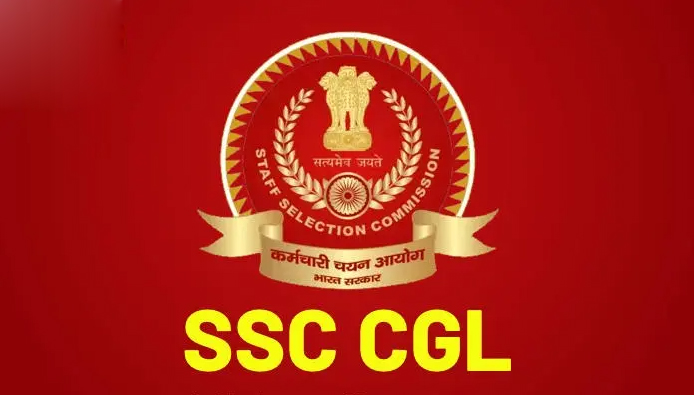SSC CGL Exam

The SSC CGL (Staff Selection Commission Combined Graduate Level) exam is a highly competitive examination conducted by the Staff Selection Commission of India. It is held annually to recruit candidates for various Group B and Group C posts in various ministries, departments, and organizations of the Government of India.
The SSC CGL exam offers a significant career opportunity for candidates who aspire to work in government departments and ministries. It provides a platform to secure stable employment, attractive salary, and various other benefits associated with government jobs in India.
The Staff Selection Commission (SSC) conducts the Combined Graduate Level (CGL) Exam for recruitment to various subordinate services like:
- Examiner in Customs.
- Sub-Inspectors in Central Bureau of Narcotics & CBI.
- Assistants in Ministries/Departments, attached and subordinate office of the Govt. of India.
- Auditor Offices under C&AG, CGDA, CGA & others.
- Tax Assistant in CBDT and CBIC
- Postal Assistant/ Sorting Assistant in Department of Post, Ministry of Communication
- Compiler in Registrar General of India.
- Accountant/ Junior Accountant
- Preventive Officers in Customs.
- Assistant Enforcement Officer in Directorate of Enforcement, Department of Revenue.
- Divisional Accountant, Jr. Accountant, Auditor & UDCs in various offices of Govt. of India.
SSC CGL Exam 2023 Important Dates
| Events | Dates |
|---|---|
| Online Application start date | April 03, 2023 |
| Last Date for Applying Online | May 03, 2023 |
| Last date and time for generation of offline Challan | May 04, 2023 (23:00) |
| Last date and time for making online fee payment | May 05, 2023 (23:00) |
| Last date for payment through Challan(during working hours of Bank ) | May 05, 2023 |
| Dates of ‘Window for Application Form Correction’ including online payment. | May 07, 2023 to May 08, 2023 |
| SSC CGL Tier 1 Exam 2023 | Jul 2023 |
| SSC CGL Tier 1 Answer Key 2023 | To be notified later |
| SSC CGL Tier 1 Result 2023 | To be notified later |
| SSC CGL Tier 2 exam 2023 | To be notified later |
SSC CGL: Exam Pattern
SSC CGL Tier-1 Exam Pattern 2023
| Subject | Total Questions | Total Marks | Duration |
|---|---|---|---|
| General Intelligence and Reasoning | 25 | 50 | A cumulative time of 60 minutes (For VH & Candidates suffering from Cerebral Palsy: 80 minutes) |
| General Awareness | 25 | 50 | |
| Quantitative Aptitude | 25 | 50 | |
| English Language | 25 | 50 | |
| Total | 100 | 200 |
SSC CGL Tier-2 Exam Pattern 2023
| Session | Section | Subject | Total Questions | Total Marks | Duration |
|---|---|---|---|---|---|
| Session – I |
Section – I |
Module-I: Mathematical Abilities
Module-II: Reasoning and General Intelligence |
30
30 |
60 X 3 = 180 | 1 hour |
|
Section – II |
Module-I: English Language and Comprehension
Module-II: General Awareness |
45
25 |
70 X 3 = 210 | 1 hour | |
| Section – III | Module-I: Computer Knowledge | 20 | 20 X 3 = 60 | 15 Minutes | |
| Session – II | Section – III | Module-II: Data Entry Speed Test | One Data Entry Task | – | 15 Minutes |
| PAPER II | Statistics | 100 | 100 x 2 = 200 | 2 hours | |
| PAPER III | General Studies (Finance and Economics) | 100 | 100 x 2 = 200 | 2 hours | |
SSC CGL Exam Syllabus 2023
SSC CGL Syllabus Tier-I 2023
| General Intelligence and Reasoning | ||
|---|---|---|
| Analogies Similarities and Differences Space Visualization Spatial Orientation Problem Solving Analysis Judgment Decision Making Visual Memory Discrimination Observation Relationship Concepts Arithmetical Reasoning and figural classification Arithmetic Number Series Non-verbal Series Coding and Decoding Statement Conclusion |
Syllogistic Reasoning Semantic Analogy Symbolic/ Number Analogy Figural Analogy Semantic Classification Symbolic/ Number Classification Figural Classification Semantic Series Number Series Figural Series Problem Solving Word Building Coding & De-coding Numerical Operations Symbolic Operations Trends, Space Orientation Space Visualization |
Venn Diagrams Drawing inferences Punched hole/ pattern- folding & un-folding Figural Pattern- folding and completion, Indexing, Address matching, Date & city matching Classification of centre codes/roll numbers Small & Capital letters/ numbers coding Decoding and Classification Embedded Figures Critical thinking Emotional Intelligence Social Intelligence Other sub-topics |
| General Awareness |
|---|
| Questions in this component will be aimed at testing the candidate’s general awareness of the environment around him and its application to society. Questions will also be designed to test knowledge of current events and of such matters of everyday observations and experience in their scientific aspect as may be expected of any educated person. The test will also include questions relating to India and its neighbouring countries especially pertaining History, Culture, Geography, Economic Scene, General Policy & Scientific Research. |
| Quantitative Aptitude | ||
|---|---|---|
| Computation of whole numbers Decimals, fractions and Relationships between numbers Percentage Ratio & Proportion Square roots Averages Interest Profit and Loss Discount Partnership Business Mixture and Alligation Time and distance Time & Work Basic algebraic identities of School Algebra & Elementary surds |
Graphs of Linear Equations Triangle and its various kinds of centres Congruence and similarity of triangles Circle and its chords Tangents Angles subtended by chords of a circle Common tangents to two or more circles Triangle Quadrilaterals Regular Polygons Right Prism Right Circular Cone Right Circular Cylinder |
Sphere Hemispheres Rectangular Parallelepiped Regular Right Pyramid with triangular or square base Trigonometric ratio Degree and Radian Measures Standard Identities Complementary angles Heights and Distances Histogram Frequency polygon Bar diagram & Pie chart |
| English Comprehension |
|---|
| Candidate’s ability to understand correct English, his/ her basic comprehension and writing ability, etc. would be tested. |
SSC CGL Syllabus for Tier II 2023
| Module-I of Session-I of Paper-I (Mathematical Abilities) |
|---|
| Number Systems:Computation of Whole Number, Decimal and Fractions, Relationship between numbers.
Fundamental arithmetical operations:Percentages, Ratio and Proportion, Square roots, Averages, Interest (Simple and Compound), Profit and Loss, Discount, Partnership Business, Mixture and Alligation, Time and distance, Time and work. Algebra:Basic algebraic identities of School Algebra and Elementary surds (simple problems) and Graphs of Linear Equations. Geometry:Familiarity with elementary geometric figures and facts: Triangle and its various kinds of centres, Congruence and similarity of triangles, Circle and its chords, tangents, angles subtended by chords of a circle, common tangents to two or more circles. Mensuration: Triangle, Quadrilaterals, Regular Polygons, Circle, Right Prism, Right Circular Cone, Right Circular Cylinder, Sphere, Hemispheres, Rectangular Parallelepiped, Regular Right Pyramid with triangular or square Base. Trigonometry:Trigonometry, Trigonometric ratios, Complementary angles, Height and distances (simple problems only) Standard Identities Statistics and probability:Use of Tables and Graphs: Histogram, Frequency polygon, Bar-diagram, Pie-chart; Measures of central tendency: mean, median, mode, standard deviation; calculation of simple probabilities. |
| Module-II of Section-I of Paper-I (Reasoning and General Intelligence) |
|---|
| Questions of both verbal and non-verbal type. These will include questions on Semantic Analogy, Symbolic operations, Symbolic/ Number Analogy, Trends, Figural Analogy, Space Orientation, Semantic Classification, Venn Diagrams, Symbolic/ Number Classification, Drawing inferences, Figural Classification, Punched hole/ pattern-folding & unfolding, Semantic Series, Figural Patternfolding and completion, Number Series, Embedded figures, Figural Series, Critical Thinking, Problem Solving, Emotional Intelligence, Word Building, Social Intelligence, Coding and de-coding, Numerical operations, Other sub-topics, if any. |
| Module-I of Section-II of Paper-I (English Language And Comprehension) |
|---|
| Vocabulary, grammar, sentence structure, synonyms, antonyms and their correct usage; Spot the Error, Fill in the Blanks, Synonyms/ Homonyms, Antonyms, Spellings/ Detecting mis-spelt words, Idioms & Phrases, One word substitution, Improvement of Sentences, Active/ Passive Voice of Verbs, Conversion into Direct/ Indirect narration, Shuffling of Sentence parts, Shuffling of Sentences in a passage, Cloze Passage, Comprehension Passage. To test comprehension, three or more paragraphs will be given and questions based on those will be asked. At least one paragraph should be a simple one based on a book or a story and the other two paragraphs should be on current affairs, based on a report or an editorial. |
| Module-II of Section-II of Paper-I (General Awareness) |
|---|
| Questions are designed to test the candidates’ general awareness of the environment around them and its application to society. Questions are also designed to test knowledge of current events and of such matters of everyday observation and experience in their scientific aspect as may be expected of an educated person. The test will also include questions relating to India and its neighboring countries especially pertaining to History, Culture, Geography, Economic Scene, General policy and scientific research. |
| Module-I of Section-III of Paper-I (Computer Proficiency) |
|---|
| Computer Basics:Organization of a computer, Central Processing Unit (CPU), input/ output devices, computer memory, memory organization, back- up devices, PORTs, Windows Explorer. Keyboard shortcuts.
Software:Windows Operating system including basics of Microsoft Office like MS word, MS Excel and Power Point etc.. Working with Internet and e-mails:Web Browsing & Searching, Downloading & Uploading, Managing an E-mail Account, e-Banking. Basics of networking and cyber security: Networking devices and protocols, Network and information security threats (like hacking, virus, worms, Trojan etc.) and preventive measures. |
Paper-II (Statistics):
Collection, Classification and Presentation of Statistical Data – Primary and Secondary data, Methods of data collection; Tabulation of data; Graphs and charts; Frequency distributions; Diagrammatic presentation of frequency distributions.
Measures of Central Tendency- Common measures of central tendency – mean median and mode; Partition values- quartiles, deciles, percentiles.
Measures of Dispersion- Common measures dispersion – range, quartile deviations, mean deviation and standard deviation, Measures of relative dispersion.
Moments, Skewness and Kurtosis- Different types of moments and their relationship; meaning of skewness and kurtosis; different measures of skewness and kurtosis. .
Correlation and Regression- Scatter diagram; simple correlationcoefficient; simple regression lines; Spearman’s rank correlation; Measures of association of attributes; Multiple regression; Multiple and partial correlation (For three variables only). .
Probability Theory- Meaning of probability; Different definitions of probability; Conditional probability; Compound probability; Independent events; Bayes theorem. .
Random Variable and Probability Distributions- Random variable; Probability functions; Expectation and Variance of a random variable; Higher moments of a random variable; Binomial, Poisson, Normal and Exponential distributions; Joint distribution of two random variable (discrete). .
Sampling Theory- Concept of population and sample; Parameter and statistic, Sampling and non-sampling errors; Probability and nonprobability sampling techniques (simple random sampling, stratified sampling, multistage sampling, multiphase sampling, cluster sampling, systematic sampling, purposive sampling, convenience sampling and quota sampling); Sampling distribution(statement only); Sample size decisions. .
Statistical Inference- Point estimation and interval estimation, Properties of a good estimator, Methods of estimation (Moments method, Maximum likelihood method, Least squares method), Testing of hypothesis, Basic concept of testing, Small sample and large sample tests, Tests based on Z, t, Chi-square and F statistic, Confidence intervals. .
Analysis of Variance- Analysis of one-way classified data and two-way classified data. .
Time Series Analysis- Components of time series, Determinations of trend component by different methods, Measurement of seasonal variation by different methods. .
Index Numbers- Meaning of Index Numbers, Problems in the construction of index numbers, Types of index number, Different formulae, Base shifting and splicing of index numbers, Cost of living Index Numbers, Uses of Index Numbers. .
Paper-III (General Studies-Finance and Economics):
Part A: Finance and Accounts-(80 marks): –
Financial Accounting: – Nature and scope, Limitations of Financial Accounting, Basic concepts and Conventions, Generally Accepted Accounting Principles. .
Basic concepts of accounting: – Single and double entry, Books of original Entry, Bank Reconciliation, Journal, ledgers, Trial Balance, Rectification of Errors, Manufacturing, Trading, Profit & loss Appropriation Accounts, Balance Sheet Distinction between Capital and Revenue Expenditure, Depreciation Accounting, Valuation of Inventories, Non-profit organisations Accounts, Receipts and Payments and Income & Expenditure Accounts, Bills of Exchange, Self-Balancing Ledgers.
Economics and Governance-(120 marks): –.
Comptroller & Auditor General of India- – Constitutional provisions, Role and responsibility. .
Finance Commission– Role and functions. .
Basic Concept of Economics and introduction to Micro Economics: – Definition, scope and nature of Economics, Methods of economic study and Central problems of an economy and Production possibilities curve.
Theory of Demand and Supply: – Meaning and determinants of demand, Law of demand and Elasticity of demand, Price, income and cross elasticity; Theory of consumer’s behaviour-Marshallian approach and Indifference curve approach, Meaning and determinants of supply, Law of supply and Elasticity of Supply. .
Theory of Production and cost: – Meaning and Factors of production; Laws of production- Law of variable proportions and Laws of returns to scale. .
Forms of Market and price determination in different markets: – Various forms of markets-Perfect Competition, Monopoly, Monopolistic Competition and Oligopoly ad Price determination in these markets. .
Indian Economy: – Nature of the Indian Economy Role of different sectors. Role of Agriculture, Industry and Services-their problems and growth. National Income of India-Concepts of national income, Different methods of measuring national income. Population-Its size, rate of growth and its implication on economic growth. Poverty and unemployment- Absolute and relative poverty, types, causes and incidence of unemployment. Infrastructure-Energy, Transportation, Communication. .
Economic Reforms in India: – Economic reforms since 1991; Liberalisation, Privatisation, Globalisation and Disinvestment. .
Money and Banking: – Monetary/ Fiscal policy- Role and functions of Reserve Bank of India; functions of commercial Banks/RRB/Payment Banks. Budget and Fiscal deficits and Balance of payments. Fiscal Responsibility and Budget Management Act, 2003.
Role of Information Technology in Governance. .
SSC CGL Exam Registration Process
Follow the below steps to start the registration process of SSC CGL 2023 :
Step 1. The Applications for SSC CGL 2023 can only be submitted in online mode through the official website of SSC viz. https://ssc.nic.in.
Step 2. Now click on the “Apply Online” link under “Combined Graduate Level Examination” section under “Latest Notifications” tab & fill all the details as asked in the online application form.
Step 3. After that upload all the required documents such as your scanned signature & colour passport size photograph in JPEG format (20 KB to 50KB).
Step 4. Before final submission of the SSC CGL online form, candidates must cross check all details provided in every field of the form as after submission of the application form, no further changes/ correction/ modification shall be entertained under any circumstances.
SSC CGL Exam Classes Features

Interactive Classes

Small Batch Size

Aptitude based Mock Tests

Study Notes

Physical Study Materials

Exam Pattern based Comprehensive Tests
SSC CGL Exam Fee Structure
SSC CGL Tier I
₹20000/-
FOR COMPLETE SYLLABUS
SSC CGL Tier II
₹40000/-
FOR COMPLETE SYLLABUS
Why Career Avenues for SSC CGL Exam
- 18+ years of excellence in providing world class education.
- Achieved the milestone of training over 1,00,00+ students.
- Career Avenues, the best Entrance Exam preparation coaching in Green Park.
- The most experienced faculties.
- Excellent Results in Entrance Exams.
- Small Batches are Available.
- Holistic teaching methodology covering all aspects of Entrance Exam preparation.
- Our faculty has always been our greatest strength.
- Our faculty does not only believe in theoretical knowledge but also teaches their students to use their knowledge practically.
- Our coaching helps students acquire knowledge that they need to succeed and sustain the difficulties they might face




